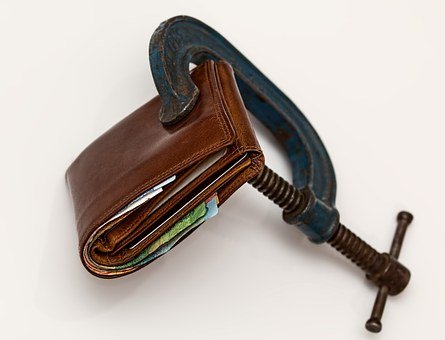Do you have a loan or a debt in your name that you’re trying to pay off? Debts are interesting things, and there are a number of ways in which you can consolidate them that would make the process easier for you and lighter on your wallet.
Your consolidation efforts can come in a lot of different ways. You can transfer your debt to a single credit card with a lower interest rate, or arrange a debt management payment plan through a non-profit credit counseling agency.
An excellent option to go about this is to use the equity on the house you own, using it as collateral. This option is known as a Home Equity Line of Credit (HELOC), and up next we’re going to tell you more about it.

What Is HELOC?
If you own a house, you can consolidate your debt by using the equity on your house and putting it up as collateral. This makes sure that the amount you owe is effectively transferred to a lower interest loan.
The equity that you get on your house will effectively be a second mortgage on your house. If the first mortgage isn’t completely paid off yet, you will get this on top of the first mortgage on your house.
You will have to have the financial capability to pay interest on both of these amounts. HELOC options are a great way to ensure that you manage your debt well. If you’re looking into it, check out the best HELOC lenders for 2020.
Pros
HELOCs can be a good option for debt consolidation. Some of the best features of these loans are mentioned below.
- Home loans are much lower on interest than your typical credit card interest loans. They are bound by a solid piece of property, and are hence more secure.
- Since you do not have to pay interest and installments to a number of credit card companies, your interest, and in turn your monthly installments, will be of smaller value than the original amount.
- You will get tax breaks if a significant portion of the loan is used to buy or modify the borrower’s property. Check out the IRS rules for HELOC.
Cons
HELOC options come with their own share of cons as well. If not taken into consideration, these might cause you to get into significant debt or even lose your house. Some of these cons are mentioned below.
- The loans on your credit cards are dischargeable. This is not true for home loans, and you will definitely end up losing your house to foreclosure by the bank if the monthly installments are not taken care of.
- The real estate market can be fickle, and the value of your equity depends on the condition of the market at the time. If the real estate market plunges, you might end up having to give up possession of the house.
- Giving up possession of your house will not only leave you without a home but will also affect your credit score for years to come.
- You have to make sure you only borrow as much as you need on the house, or you might end up in more debt than you originally owed.

Conclusion
HELOC options are a good way to consolidate your debt and reduce the pressure of the amount you owe, but they come with their own pros and cons.
We hope that this article has given you a clear idea of what you need to keep in mind before you put your house up as collateral. Keep in mind that it is essentially like having a second mortgage.
Disclaimer
HELOC options might sound logical and easy, but there are dangers involved in it, just like every credit option.
Make sure you read the terms and conditions carefully before taking up a second mortgage. Getting the advice of a lawyer or financial professional may be prudent before you take the leap.


